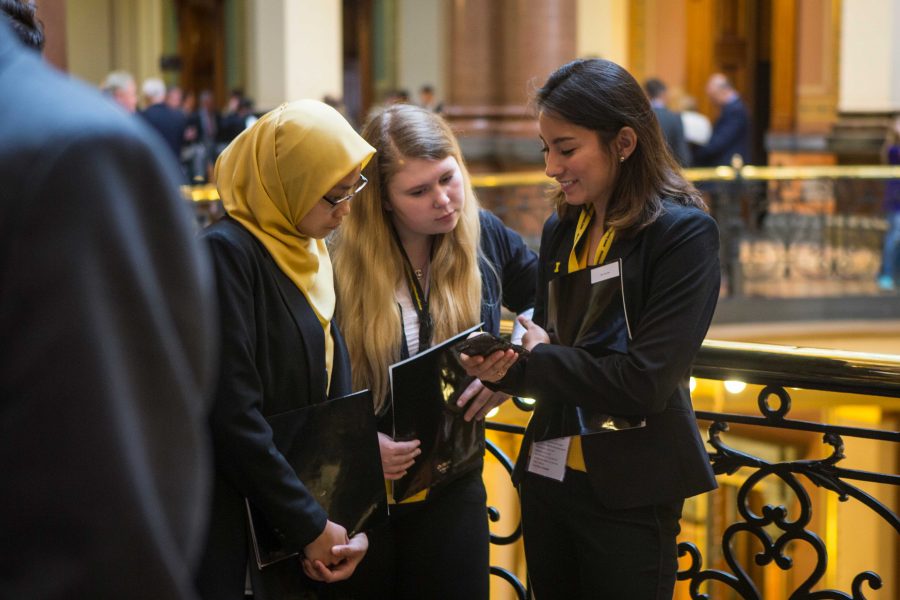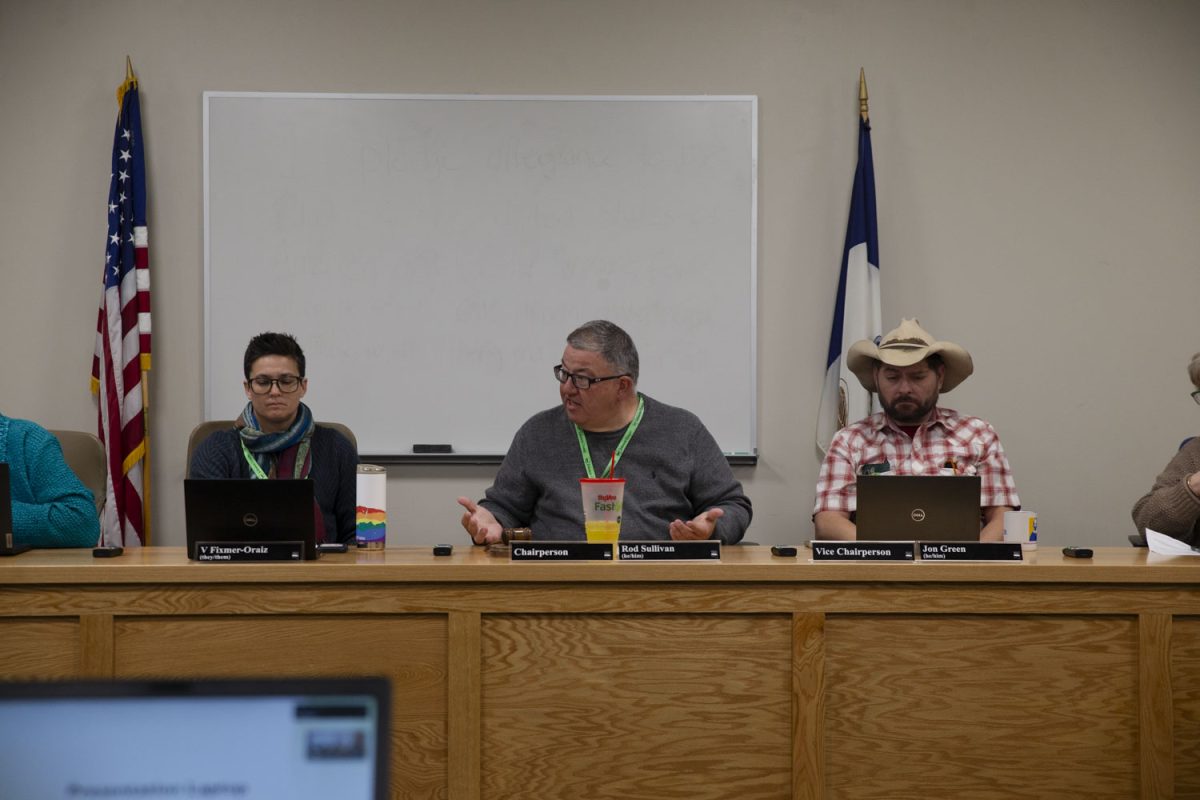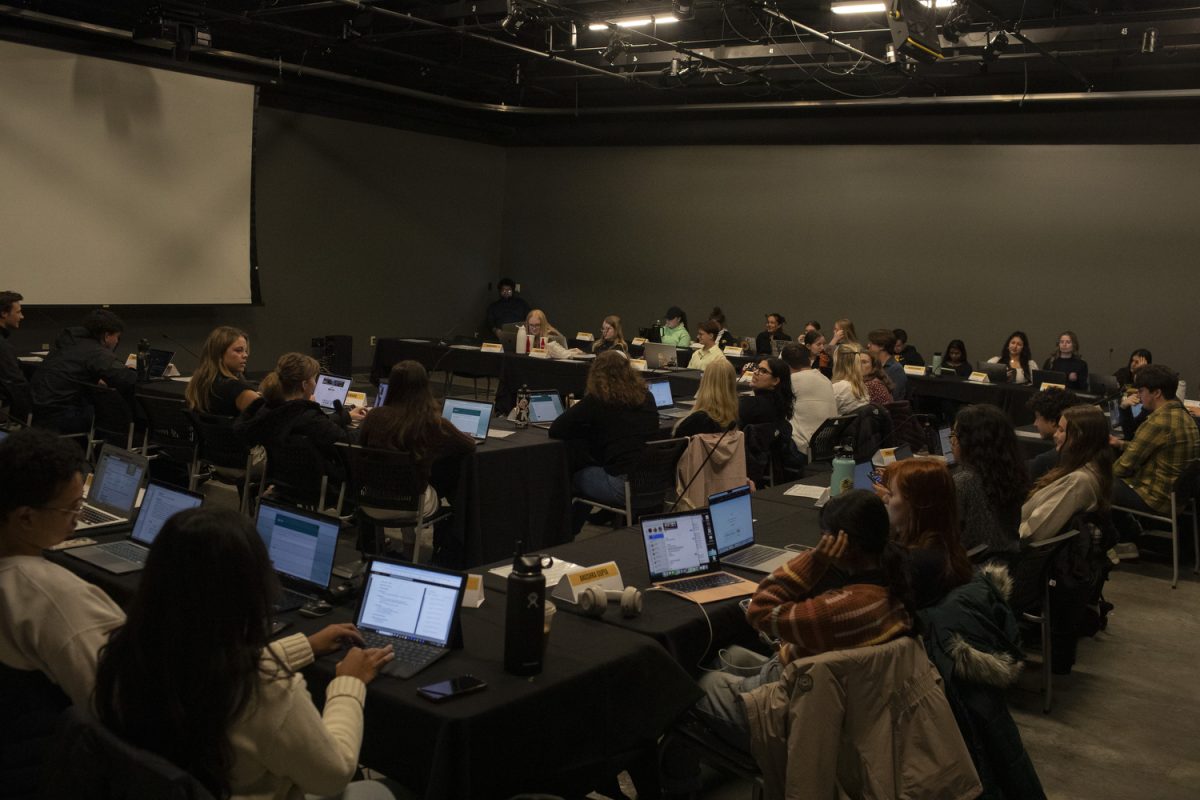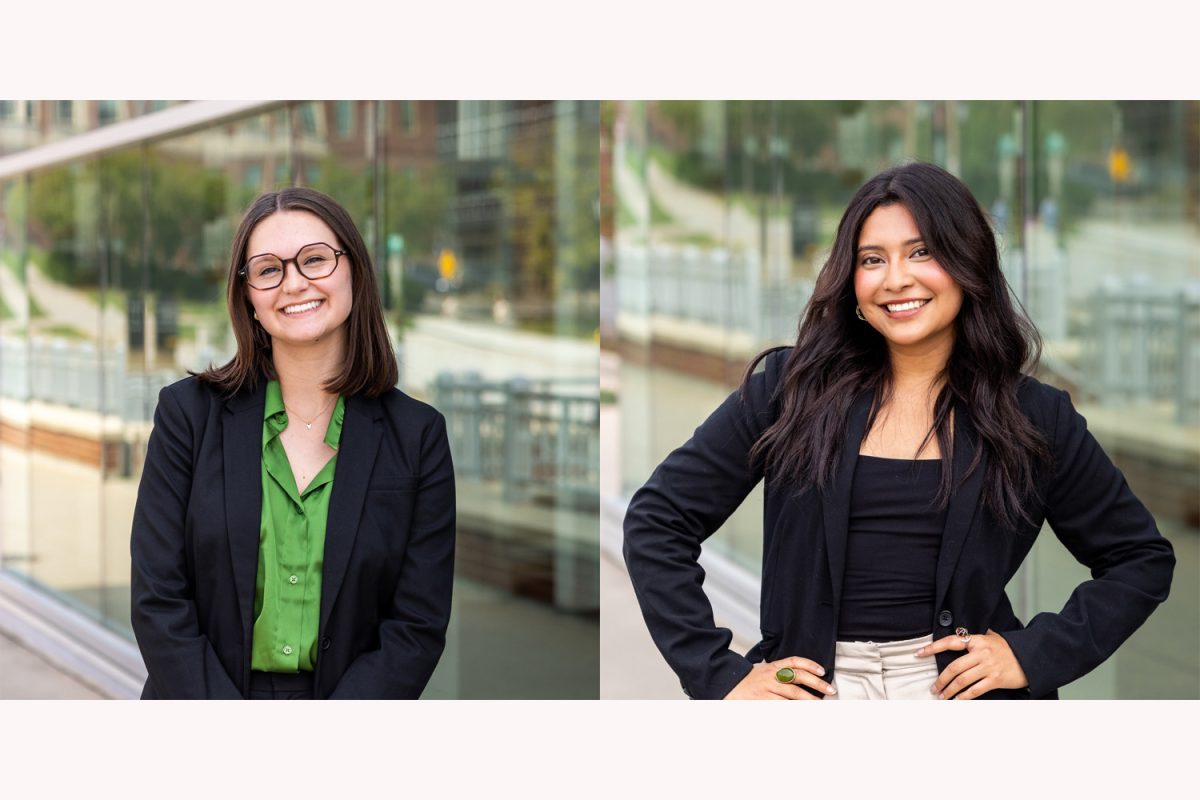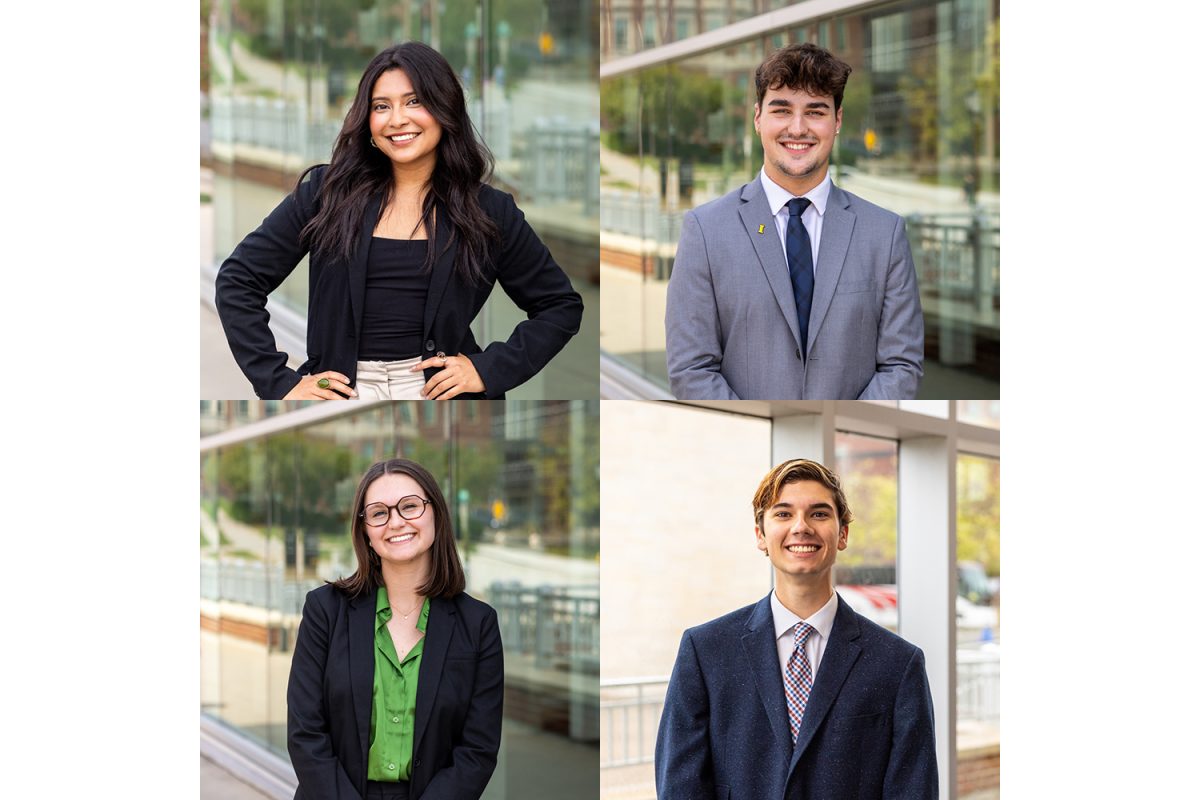With the state Legislature back in session, student leaders have begun work meeting legislators to discuss a variety of initiatives they will advocate during this session.
The University of Iowa Student Government’s initiatives include passing medical amnesty and pushing for increased state appropriations, along with smaller projects focused on creating a tax incentive for employers to provide their employees with assistance with student-loan debt and promoting a K-12 sexual-assault-prevention curriculum.
“Being able to talk about these really important issues that not only affect the students whom we represent but also young people in our state and across the country with our legislators is really cool, and to be able to see some difference made on them is great,” UISG Director of Governmental Relations Mitchell Dunn said.
Dunn said UISG’s foremost focus is to advocate for increased state appropriations.
Related: Additional cuts to Iowa higher-education funding likely in 2018
In September 2017, the state Board of Regents approved the three regent universities’ request for $12 million in state appropriations — $5 million each for the UI and Iowa State University, and $2 million for the University of Northern Iowa — which would fund resident undergraduate financial aid.
“We’re lucky to have a state that’s supported our public universities and has maintained three wonderful and affordable universities, but this is a major concern,” Dunn said. “Universities are doing more with less.”
Another initiative UISG focuses heavily on is medical amnesty. Such laws aim to provide underage drinkers with protection from legal prosecution in the case of a medical emergency.
The UI has its own policy in place called the Responsible Action Protocol, which is used when students seek emergency help relating to drug or alcohol use.
“This is a bipartisan issue that most states have already passed,” Dunn said. “Iowa is one of 13 states without it, and we are an anomaly among our Midwestern peers. Minnesota has it, Wisconsin has it, Illinois has it, Missouri has it, and so it’s about time that we do something to protect the young people in our state.”
UISG passed a resolution last year voicing its support for passing medical amnesty in Iowa.
Related: UISG moves on medical amnesty
The Iowa Senate unanimously (49-0) passed a bill in 2017 regarding medical amnesty, and student leaders hope it will pass the House this legislative session.
“The legislators only have so much time, and they have a lot there,” UISG City Liaison Benjamin Nelson said. “They are very ambitious with what they want to do, both last year and this year, and so I truly believe it’s just us making [medical amnesty] a priority to the legislators to get it done this year.”
Work began over winter break with UISG members met with legislators to discuss various initiatives.
Related: UI lobbies the Capitol
UISG Director of Student Services Kyle Scheer said he had the opportunity to meet with Rep. Art Staed, D-Cedar Rapids, one of the legislators from his district, to discuss the initiatives.
“It felt very empowering to not only be able to share my experience,” Scheer said. “[Staed] was very receptive. We had a very engaging conversation about the topics themselves and also the politics that go behind making these things happen.”
Nelson said he encouraged students to contact their legislators and to get involved in advocating for issues that matter to them.
“It resonates with legislators. Political activism is important, and it’s also lackluster in the United States,” Nelson said. “It’s particularly lackluster in the youth, so I would argue that you have a very powerful platform because, unfortunately, it is a novelty.”




